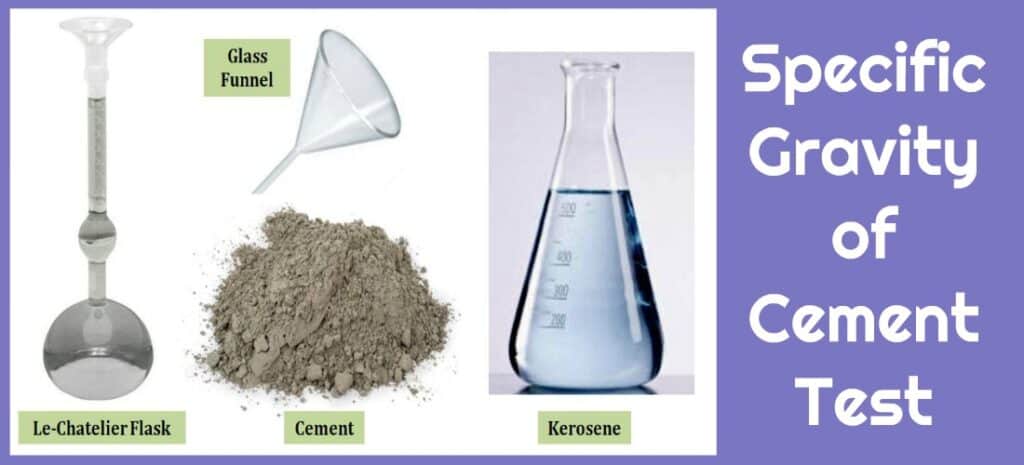The specific gravity of concrete is a measure of the density of the material. It is an important property that affects the strength and durability of the concrete. The specific gravity of concrete is defined as the ratio of the weight of a given volume of concrete to the weight of an equal volume of water at a specified temperature. In this article, we will discuss the significance of specific gravity in concrete, how to calculate it, and its relationship to other concrete properties.
Significance of Specific Gravity in Concrete:
The specific gravity of concrete is an important property that is used to determine the strength and durability of the concrete. The density of concrete affects its strength and durability, and thus its ability to withstand the stresses and strains that it will encounter in use. The higher the specific gravity of concrete, the denser it is, and the stronger and more durable it will be. Conversely, a lower specific gravity indicates a less dense and weaker concrete.
In addition to its impact on strength and durability, the specific gravity of concrete also affects other properties, such as permeability, shrinkage, and thermal expansion. A higher specific gravity generally results in lower permeability, less shrinkage, and lower thermal expansion. This makes concrete with a higher specific gravity more suitable for applications where these properties are critical, such as in marine or offshore structures.
How to Calculate Specific Gravity of Concrete:
The specific gravity of concrete is calculated by dividing the weight of a given volume of concrete by the weight of an equal volume of water. The following steps outline the process of calculating the specific gravity of concrete:
Step 1: Determine the weight of a known volume of concrete
Measure the weight of a known volume of concrete, typically in cubic feet or cubic meters. The weight should be measured in a dry state, without any moisture on the surface.
Step 2: Determine the weight of an equal volume of water
Measure the weight of an equal volume of water at a specified temperature. The temperature is typically 20°C (68°F), which is the standard temperature used in most concrete testing.
Step 3: Calculate the specific gravity of concrete
Divide the weight of the concrete by the weight of an equal volume of water. The resulting value is the specific gravity of the concrete.
Specific gravity of concrete = Weight of concrete / Weight of an equal volume of water
Relationship between Specific Gravity and Other Concrete Properties:
The specific gravity of concrete is related to several other properties of the material. These properties include compressive strength, tensile strength, modulus of elasticity, permeability, and thermal expansion.
Compressive Strength:
The compressive strength of concrete is directly related to its density, which is determined by its specific gravity. A higher specific gravity generally results in a higher compressive strength, while a lower specific gravity results in a lower compressive strength.
Tensile Strength:
The tensile strength of concrete is also affected by its density, which is determined by its specific gravity. A higher specific gravity generally results in a higher tensile strength, while a lower specific gravity results in a lower tensile strength.
Modulus of Elasticity:
The modulus of elasticity of concrete is related to its density, which is determin by its specific gravity. A higher specific gravity generally results in a higher modulus of elasticity, while a lower specific gravity results in a lower modulus of elasticity.
Permeability:
The permeability of concrete is inversely related to its density, which is determin by its specific gravity. A higher specific gravity generally results in a lower permeability, while a lower specific gravity results in a higher permeability.
Thermal Expansion:
The thermal expansion of concrete is directly related to its density, which is determin by its specific gravity. A higher specific gravity generally results in a lower thermal expansion, while a lower specific gravity results in a higher thermal expansion. important property
Conclusion
In summary, the specific gravity of concrete is a critical property that affects many aspects of its performance. It is determin by the weight of a given volume of concrete compare to. The weight of an equal volume of water at a specified temperature. A higher specific gravity generally indicates denser, stronger, and more durable. With lower permeability, less shrinkage, and lower thermal expansion. The specific gravity of is related to several other properties of the material. Including compressive strength, tensile strength, modulus of elasticity, permeability, and thermal expansion. Understanding the specific gravity of and its relationship to these properties is essential for selecting. The appropriate concrete mix for different applications and ensuring the desired performance of the concrete.

